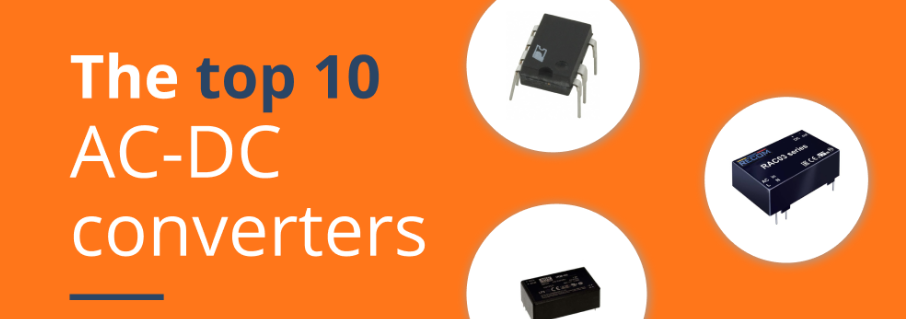In today’s ever-evolving technological landscape, the seamless functioning of electronic devices relies on the efficient conversion of alternating current (AC) to direct current (DC). This article delves into the intricacies of AC to DC converters, exploring their working principles, types, applications, and the pivotal role they play in powering our gadgets.
Introduction
Understanding the fundamental concepts of AC to DC conversion is crucial for anyone curious about the inner workings of electronic devices. These converters serve as the backbone of our interconnected world, ensuring a smooth flow of power to a myriad of gadgets, from smartphones to complex industrial machinery.
How AC to DC Converters Work
At its core, the conversion process involves transforming the sinusoidal AC waveform into a steady DC stream. This section will break down the technicalities, explaining the role of diodes, capacitors, and transformers in achieving this fundamental transformation.
Types of AC to DC Converters
Explore the diverse array of converters, from rectifiers to inverters and switching power supplies, each designed for specific applications. Understanding their unique characteristics is key to selecting the right converter for a given electronic device.
Advantages of AC to DC Converters
Delve into the benefits that these converters bring to the table, such as energy efficiency and compatibility with a wide range of electronic devices. Uncover the reasons behind their ubiquity in our daily lives.
Common Applications
From the power adapters that charge our devices to the manufacturing processes of electronic gadgets, AC to DC converters are indispensable. Learn about their role in various applications that impact our daily lives.
Choosing the Right AC to DC Converter
Navigate the considerations involved in selecting the appropriate converter for specific voltage and current requirements. This section aims to empower readers with the knowledge needed to make informed choices.
Key Components
Demystify the internal components of AC to DC converters, understanding the functions of diodes, capacitors, and transformers. Gain insights into how these elements work together to ensure a stable DC output.
Troubleshooting and Maintenance
Equip yourself with practical tips for identifying and resolving common issues that may arise with AC to DC converters. Additionally, discover maintenance practices to prolong the lifespan of these essential devices.
Future Developments in AC to DC Conversion
Peek into the future of AC to DC conversion, exploring emerging technologies and potential advancements that could redefine efficiency and performance standards.
Environmental Impact
As technology progresses, so does our responsibility to consider its environmental impact. Examine the ecological footprint of AC to DC converters and discover sustainable alternatives and practices.
Case Studies
Immerse yourself in real-world examples illustrating the successful application of AC to DC converters in diverse industries. These case studies provide a practical understanding of the converters’ significance.
Industry Trends and Innovations
Stay abreast of the latest trends and innovations in the field of AC to DC conversion. From cutting-edge technologies to anticipated breakthroughs, this section keeps readers informed about the evolving landscape.
Safety Considerations
Prioritize safety with guidelines for the secure usage of AC to DC converters. Explore regulatory standards and certifications that ensure compliance with industry safety norms.
DIY AC to DC Converter Projects
Encourage hands-on learning with simple do-it-yourself projects that allow readers to experiment with AC to DC conversion principles. Engage the audience with practical demonstrations of the concepts discussed.
Conclusion
In conclusion, the article emphasizes the critical role of AC to DC converters in powering the electronic devices that have become integral to our daily lives. A quick recap of key points reinforces the importance of these converters in maintaining the functionality of our gadgets.
FAQs
- Can I use any AC to DC converter for charging my electronic devices?
- It’s crucial to match the voltage and current requirements of the device with the converter to ensure safe and efficient charging.
- How do I troubleshoot a malfunctioning AC to DC converter?
- Start by checking the power source, cables, and connections. If issues persist, consult the manufacturer’s troubleshooting guide.
- Are there eco-friendly alternatives to traditional AC to DC converters?
- Some manufacturers offer energy-efficient and environmentally friendly converters. Look for certifications like Energy Star for eco-conscious options.
- What safety certifications should I look for when purchasing an AC to DC converter?
- Look for certifications such as UL (Underwriters Laboratories) to ensure the product meets safety and performance standards.
- Can I build my own AC to DC converter at home?
- While it’s possible for enthusiasts to create simple converters, it’s advisable to follow safety guidelines and consult expert resources.

